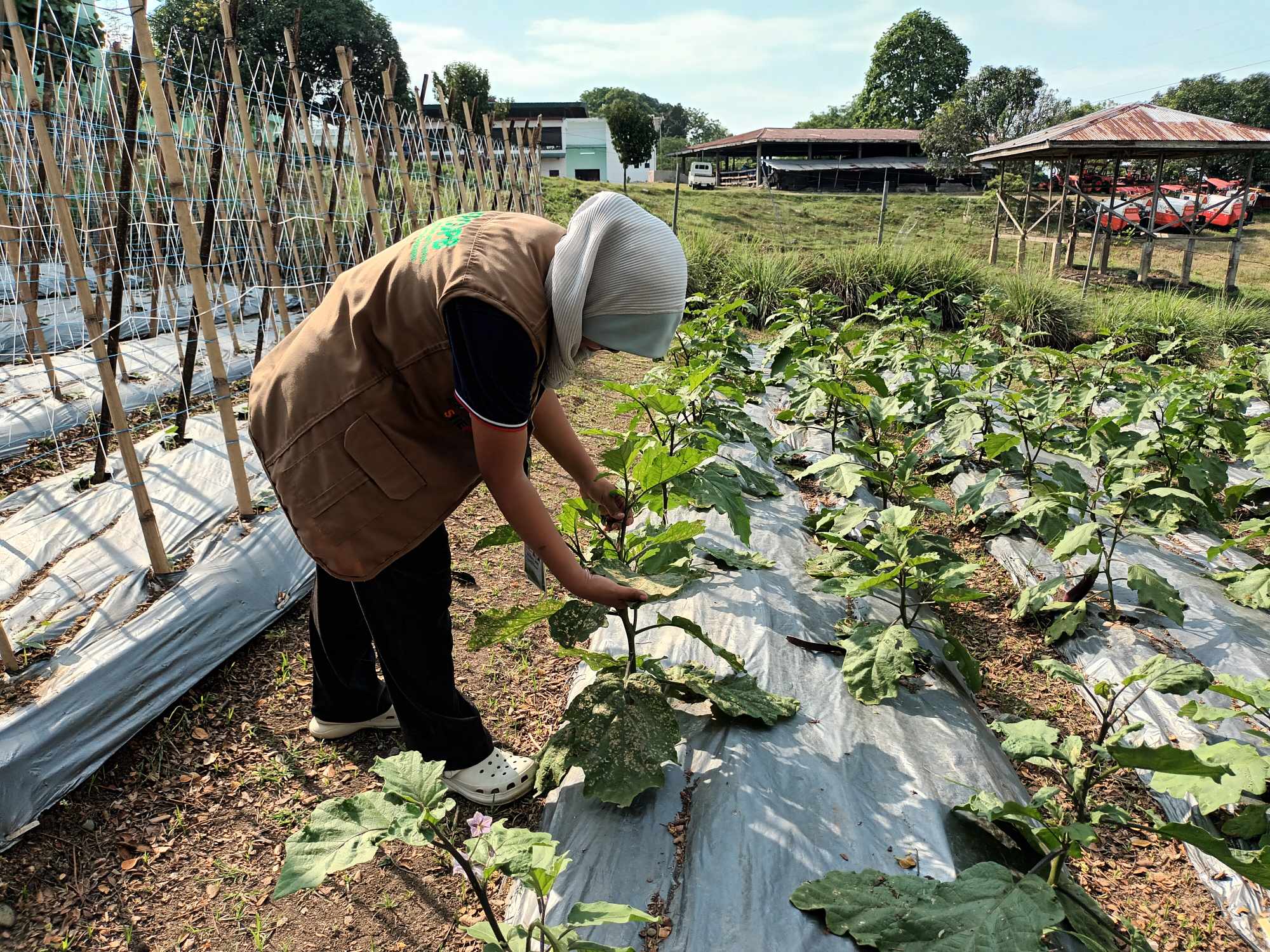

MANILA – Farmers in Maguindanao del Norte are learning strategic approaches to not just “grow and sell” but to “grow to sell” by undergoing trainings through a Japan-funded program called Small Horticulture Empowerment and Promotion (SHEP) Approach.
According to the Embassy of Japan in the Philippines, the initiative is a technical cooperation project led by the Japan International Cooperation Agency (JICA) and key partners like the Ministry of Agriculture, Fisheries and Agrarian Reform (MAFAR), Provincial Agriculture Offices and the Municipal Local Government Units of the Bangsamoro Transition Authority (BTA).
“For the project period of 2023-2024, SHEP’s focus areas include Barira and Matanog municipalities in Maguindanao del Norte. Within these communities, four farmers’ cooperatives, namely Ipinasangan Agri-business Farmers Association (Barira), Mapya su Iranun Farmers Cooperative (Barira), Iranun United Farmer Association of Bayanga Norte (Matanog) and Marinao Marayag Fisherfolks Association (Matanog), are actively participating with over 100 members in total,” the Japanese Embassy said in a statement.
According to Ramil “Rams” Musa Timpolok, Senior Agriculturist and Focal Person for Agribusiness Marketing and Assistance Division of MAFAR, through the SHEP approach, farmers are able to identify specific needs for certain projects by undergoing a “baseline survey” because most of time, interventions from the government do not match the farmers’ preferences and needs in a certain area.
“Ang ginawa naming, nagkaroon ng market survey. Yun yung ginawa ng MFAR at ng JICA. Nagkaroon ng baseline survey (kung) ano ba talaga yung talagang gusto ng mga farmers, ano ba yung mga kailangan nila. So lumabas doon sa pag interview namin na may mga ibang intervention pala galing sa government na hindi pala yun gusto nila so parang add-on nalang din para sa kanila. Pero yung pinaka gusto nila hindi pala dun. So dapat manggaling sa kanila ano talaga kailangan nila para makuha nila ng buo ang gusto nilang marating,” Timpolok said.
(What we did was do a market survey, done by MAFAR and JICA. There was a baseline survey to know what the farmers really want, what the farmers need. The survey showed that the farmers do not need what is offered to them through interventions from the government. So, it is important that it will come from them so that it can help in achieving their goals.)
Timpolok also mentioned that farmers also did a market survey to be able to know what will be the produce that will be in-demand in the market and can prepare a “cropping calendar” or schedule what crops to cultivate for specific seasons of the year.
“So kagaya ngayon, so Ramadan, so meron din mga area na nagtanim na talaga nung eggplant na timing talaga sa Ramadan. Alam natin marami ang kakain ng mga Bangsamoro para sa Ramadan.”
(So, like now, its Ramadan, so there are areas that planted eggplants which is good timing for Ramadan. We know that a lot of the Bangsamoro will eat this during Ramadan.)
Aside from this, Timpolok said that it is important for farmers to acquire skills and not rely on information passed on by “neighbours, family and friends” but should be based on training through what is called “Training of Trainers” or T.O.T. to ensure accurate information.
As part of the project, extension staff from MAFAR have undergone comprehensive training in horticulture management, including bookkeeping, pest management, and other essential skills and will be facilitating training sessions for participating cooperatives within their respective areas, ensuring the successful implementation of the SHEP Approach.

Agriculturist Bai Sarah K. Samad of MAFAR-BARMM inspects demonstration plots transplanted with eggplants, which has been harvested in time for Ramadan. According to market surveys done through the SHEP program, crops such as squash, cucumbers and egplants are in-demand during Ramadan. (Photo courtesy of Karen A. Ow-Yong)
The SHEP Approach was originally launched in 2006 and is considered as a “groundbreaking initiative” developed by JICA in Kenya, which has reported remarkable success in enhancing farmers’ income and transforming agricultural practices through shifting the mindset of smallholder farmers from “mere cultivation to strategic market-oriented agriculture.”
In Mindanao, SHEP-CDPB (Capacity Development Project for Bangsamoro) underscores JICA’s commitment to fostering sustainable peace and development in the region, where decades of conflict have hindered economic opportunities for its people.
JICA believes that by empowering farmers and promoting market-oriented agricultural practices, SHEP aims to create a “more resilient and prosperous future” for communities in the Bangsamoro region.




